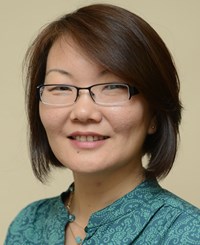Recently I attended the 10th annual fundraising reception organized by the Mongolian Women’s Fund (MONES). It was a relief to see a big venue full. And it was a pleasant surprise to learn who the people attending this event were— owners of top bakery shops, directors of medium size industrial entities, program directors and managers of international organizations, owners of jewelry shops. This crowd was quite different from what it was five years ago. Back then, people who came to this annual event, were from the inner circle, people who were already concerned with social issues—mainly NGO activists.
MONES has been doing domestic fundraising since its starting days. Being a pioneer in Mongolia by fully engaging in domestic fundraising through events and campaigns, MONES experienced many ups and downs in its 15-year-long fundraising journey. We often struggled to meet our annual goals, every dollar was earned the hard way. Yet, we felt compelled to carry on. Our fundraising was never about raising money only. It was and is about raising support for women’s rights. We recognize that women’s participation— not only political but also economic— as essential for development. Economic participation includes philanthropy.
So, as a fundraiser, I felt proud of my people. In a country, where, for very long, the state took care of all social issues, people, finally, are taking it personally. They are willing to donate a portion of their income to a social cause, to women’s rights, for that matter. Yet, as I discovered during the process of this annual event, the “cause” itself was not the primary reason for many people to attend. They came because of friends, relatives, and colleagues.
The power of personal networks
Mongolia, with its culture rooted in nomadic lifestyle, is a clan-based society with tight-knit networks of relatives and friends who rely on each other for help. Here, giving is a must. Every month you are supposed to give to newborns, for funerals, to cover medical expenses, to pay tuition, to buy clothes, food, books—not just for yourself, but for the community. This list is endless and can range from an apartment to a pair of old shoes. And your level of income is of no relevance. Your donation can be small, but it is a must. Whoever is in need within this network can expect the network to extend its help.
Since society is not entirely nomadic anymore, networks have diversified and multiplied. Now, a person is affiliated with more than one network and can be a part of several networks – not only relatives, but classmates, co-workers, business affiliates, friends from a summer camp, from a dance club, etc. Nevertheless, the same rule of network help is applied here, although the level of commitment is lower. If you hear someone from any of your networks is in need, you are expected to help.
Who funds social causes?
It’s been two decades since the state stopped being a sole caretaker of social issues, like maternity health, education for rural children, services to disabled children, etc. Social issues exist in abundance, but the state has neither the capacity nor the will to take care of them. Many international aid projects have since filled the void to tackle these issues. However, their outreach is focused on improving the situation of target groups. Here the general public plays more of an observer’s role, without being offered many opportunities to participate.
For MONES, we’ve learned that domestic fundraising has proven to be the most powerful tool to connect individual people with the issue of women’s rights. It is absolutely crucial that this support is built from within and is extended throughout Mongolia as it has become more than just giving money. Our donors give more than money. Through giving to women and girls many, in turn, become advocates of women’s rights more broadly.
Looking forward
As MONES, we are rooted in Mongolia. We are part of and have access to these personal networks—networks that can be harder to enter and engage with as international funders. So, after many trials and lessons, we learnt to engage with these personal networks and find ways to make connections to women’s rights organising in our country.
We invite a range of people to attend our events and encourage them to give donations through people they themselves know and trust. They may not yet be fully aware or feel supportive of women’s rights, but they respond to personal invitations. So, do we really need to break the culture of giving through personal networks? Or, is it better to utilize the existing culture and create a new channel that leads to more people supporting and recognizing the importance of social causes, like women’s rights? Maybe, in a due time, people will feel they can go outside of their networks to give to causes they support and are passionate about.
We at MONES will continue the journey of developing an understanding of local philanthropy within Mongolia that is inclusive of women’s and girls’ rights. In the meantime, I am encouraged by the fact that people who attended our annual event left feeling inspired.
Bolor Legjeem, International Communications and Fundraising Officer
The Mongolian Women’s Fund (MONES) was established in June 2000 to financially support projects from women’s NGOs and grassroots women’s groups. It is the first and only national grantmaking organization that is fully dedicated to mobilizing resources and providing financial support to achieving social change through the empowerment of women. This article is part of a series posted by Mama Cash sharing the perspectives of the local and regional funds that are its grantee-partners.




Comments (0)